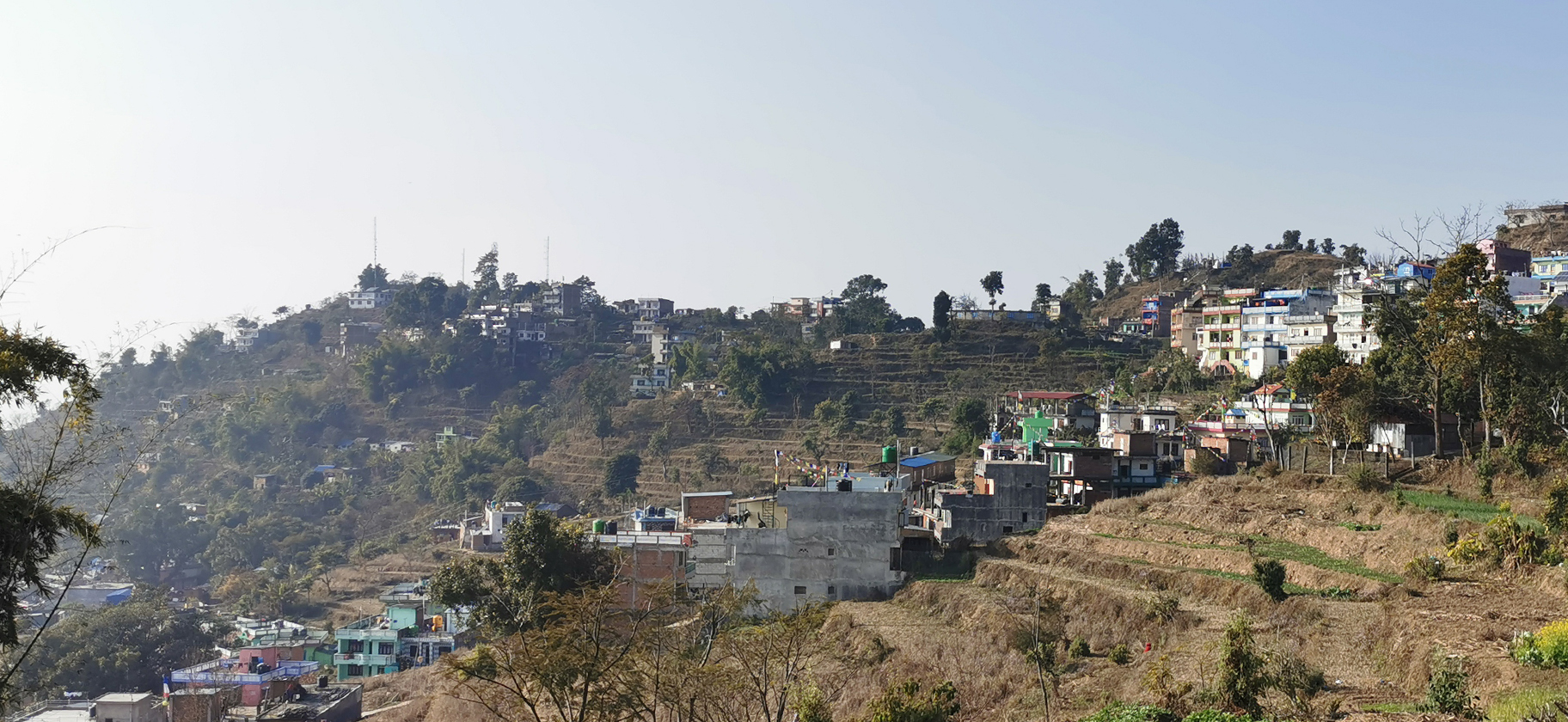The Hotel and the Homestay
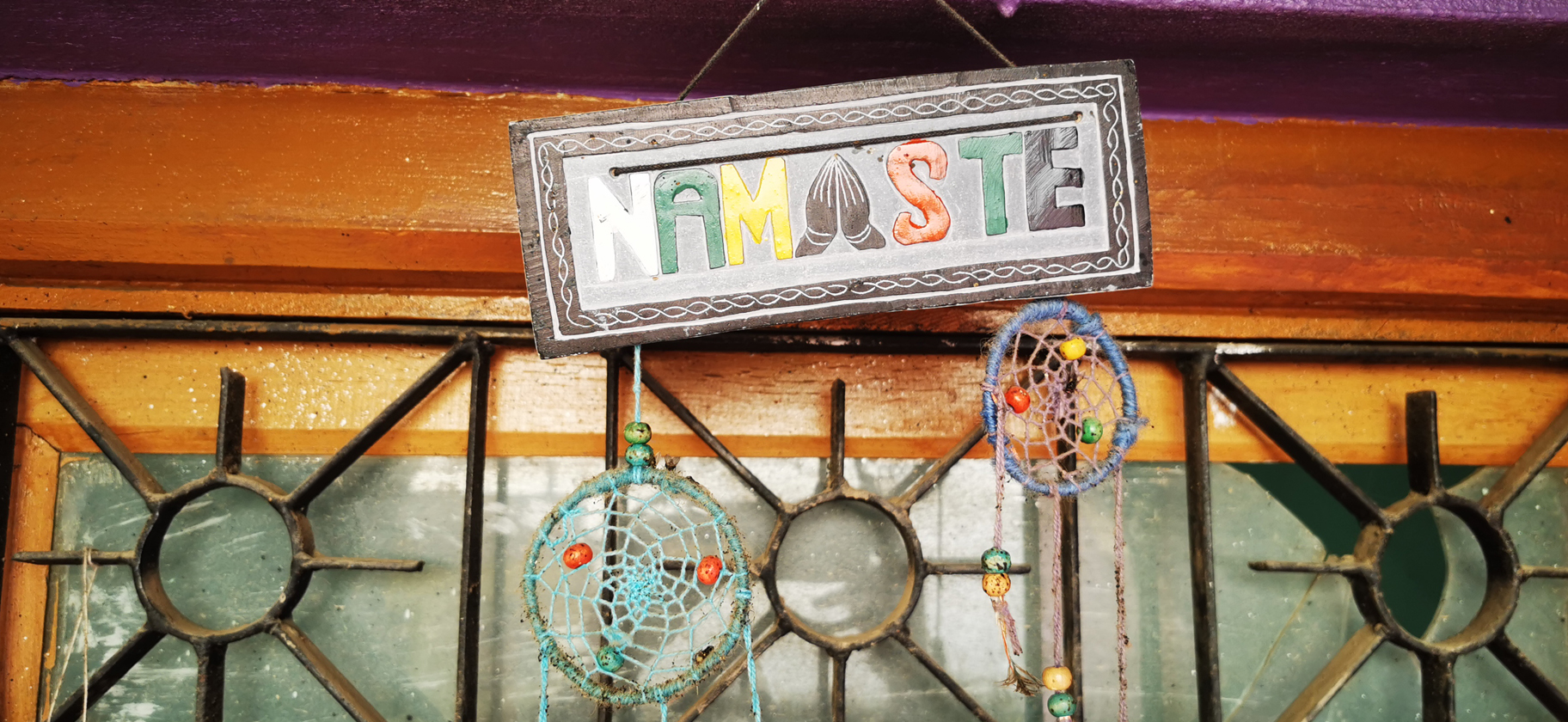
While having lunch in Chitwan I met a young couple from France who were finishing up their visit to Nepal having spent the better part of a month in the country travelling on the same loop as I but in the opposite direction. They had already travelled from Kathmandu to Pokhara and then along the southern route to Chitwan where they would be travelling back up to the capital. They mentioned the name of an obscure little town along the main road from Kathmandu to Pokhara, called Bandipur. It had been one of the first towns in Nepal that they visited and they fell in love. In their whole time in Nepal, they said, they had never been able to recreate that feeling of being swept away by the sheer beauty that that little village was able to offer and they urged me to add it to my itinerary.
Bandipur is located high up in the mountains and you have to catch a local bus from the bustling town of Dumre in the valley to get there. The road to the top is steep and all switchbacks and gravity pushes you back into your seat as you ascend through the mist and clouds. Nothing about Bandipur feels distinctly Nepalese as it is devoid of the usual chaos and noise that one becomes so accustomed to in other parts of the country. Instead, Bandipur is a sedate and laidback place where nobody seems overly pressured to get anywhere too quickly. The centre of town is the bazar where the road from Dumre ends and there is a quaint pedestrianized main shopping avenue with the occasional stupa or Hindu temple along the way. Several footpaths branch off from the main road intersecting with narrow footpaths which all seem to lead to a place called Tundhikel.
If you were to just start walking and use only your curiosity to guide you, you would end up at Tundhikel. As you approach, there are a few steps that lead up to the only patch of flat open terrain around. There is a not-quite-so-rectangular football pitch set up and a series of pani-puri carts and picnickers line the pedestrian walkway on the northern end. It is impossible not to be struck with awe at the view from Tundhikel.
Located above the mist, this small patch of grass offers views that one would always hope to see in Nepal and that the villages in the valley, blanketed by smog, are deprived of. That gift of the peaks of the Himalayas floating on a sea of clouds is a reflection of the almighty and the clearest reminder of why so many of the great religions trace their origins to this part of the world. The grandeur of these mountains dwarf all others, that to witness them is to alter the fundamental concept of a mountain in one’s mind. Adventurers from all over the world travel into them to conquer the mountain and see the world from its highest point. I once heard a man claim that he imagined the peak of Everest to be a very depressing place, for whereupon arriving the soul would be crushed as, like Alexander having no worlds left to conquer, it would have no higher mountain to climb. There are enough tulips along the path and tender souls to meet in these more temperate low-lying climes that I am happy to gaze upon a few remote parts of this world and believe them to be impenetrable. In this regard I choose blissful ignorance, for the sight of those mountains convinced me that they were so immense and so vast that they could not be climbed. I will chalk up the stories of Edmund Hillary and Tenzing Norgay, and all who came after, to fake news so that I may forever retain my sense of wonder.
I felt inspired by the view and determined that I should make the feeling last by carefully selecting my accommodation so that I could wake in the morning and look upon it. Tundhikel, however, sits on a kind of promontory and then descends steeply down into the valley and most of the hotels are on the other side back toward the village. There was but one hotel on the far side of the field called the Bandipur Mountain Resort, that had rooms that looked out over the valley toward the mountains.
The Bandipur Mountain Resort had been the first hotel built in the area. It was more expensive than the other hotels nearby and the fact that it had a monopoly on the view made it clear as to why. There was not much going on and I had my pick of a few rooms and chose one at the far end of the complex with a view that took my breath away. The hotel was built some 40 years ago and it seemed that they were still capitalizing on its location and that fact alone. Many things about the hotel were in desperate need of updating. The internet was spotty, the shower leaked water onto the floor, and though they had a credit card machine, it never worked – I was eventually forced to visit a bank machine in town and pay for my stay in cash. By Nepalese standards, the Bandipur Mountain Resort was a posh place for the well-to-do traveller and during my visit I found myself making several requests for basic things like extra coffee packets or even just a way to plug in and charge my devices – the room had but one available electrical outlet – but the staff, that never seemed very busy, dilly-dallied with every request. But for the view, there was something rundown and joyless about the hotel.
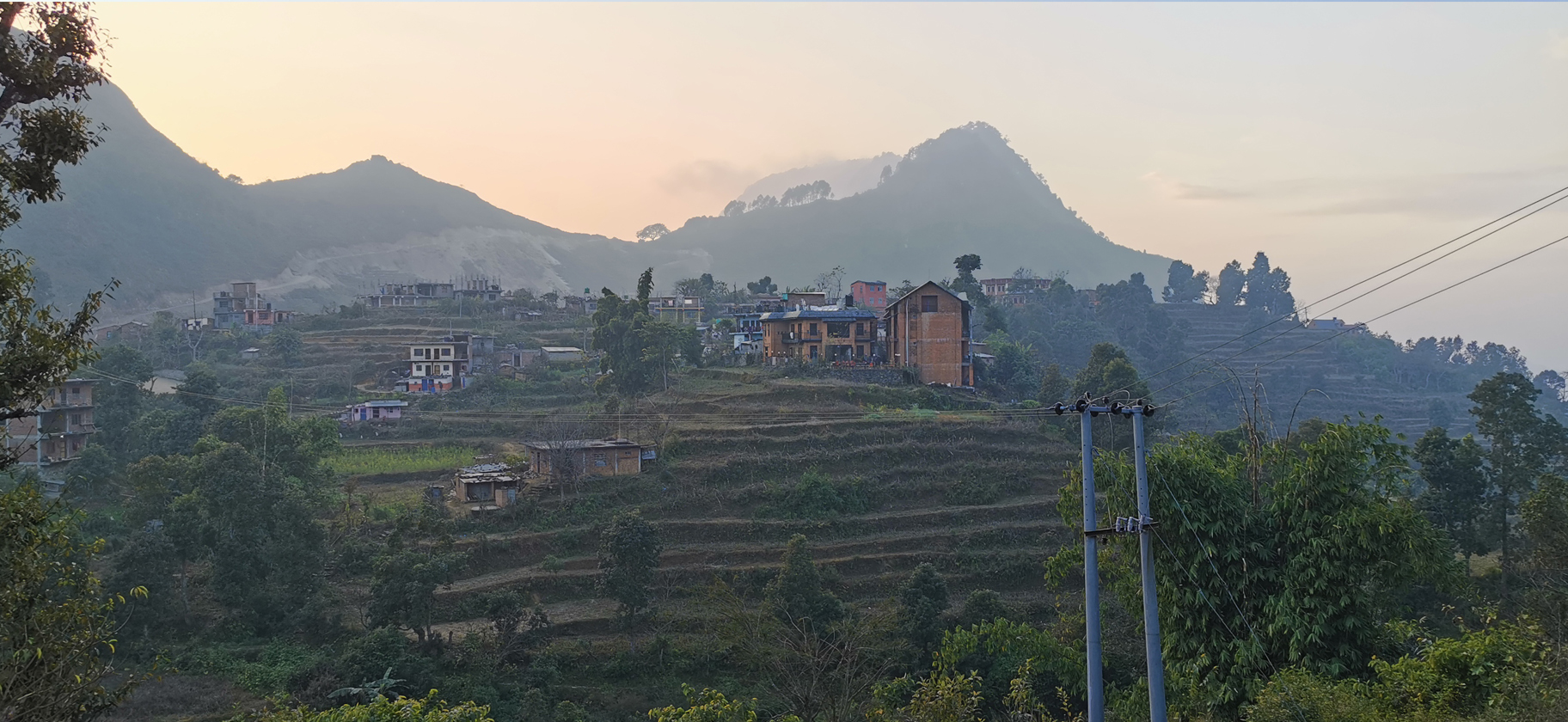 The town itself was charming and it was pleasant to stroll through its few streets of old buildings with small shopfronts and old cafés, and along the paths of the surrounding area. At the very top of the hill, there is a temple with a path leading down the mountain to a cave where you can enter with a guide for a couple of bucks. There is little tourist infrastructure at the cave but for a man wearing some big boots, carrying a flashlight, and selling potato chips.
The town itself was charming and it was pleasant to stroll through its few streets of old buildings with small shopfronts and old cafés, and along the paths of the surrounding area. At the very top of the hill, there is a temple with a path leading down the mountain to a cave where you can enter with a guide for a couple of bucks. There is little tourist infrastructure at the cave but for a man wearing some big boots, carrying a flashlight, and selling potato chips.
I was hopeful that the view from the hotel would inspire me every day as it had that first moment I had laid my eyes on it, but I never saw it again. After that first day, clouds rolled in and permanently obscured the view both of the valley and of the mountains. In all of the time I spent in Nepal, the daily cost to stay at the Bandipur Mountain Resort was by far the highest. I will always cherish those first few moments of seeing the mountains from Tundhikel but, after a couple of days, I felt it was high time to move on.
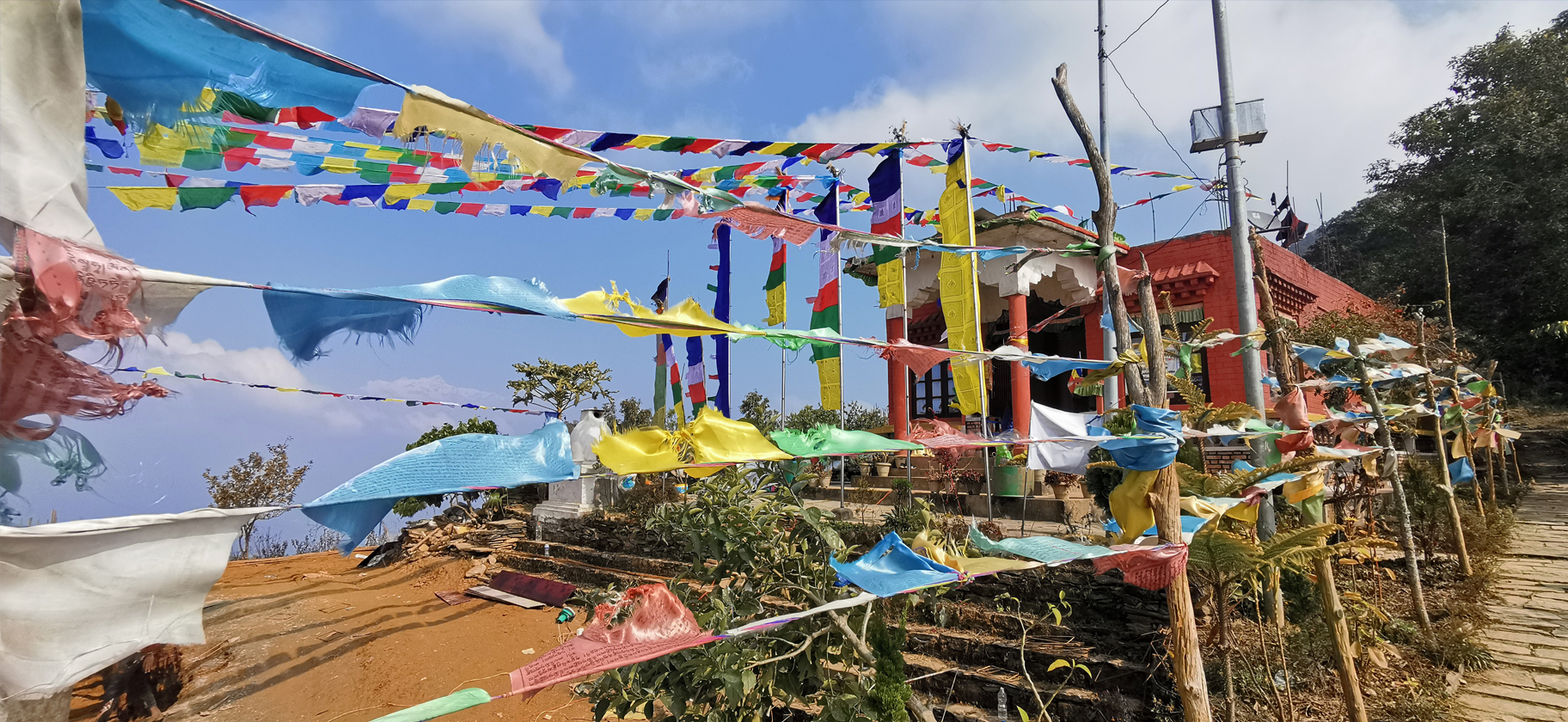
Located just 60 kilometres away to the northeast, I travelled up to Gorkha. Another town up from the valley and the main highway and built into the mountain, I hoped for a change of winds and to recapture what I felt I had lost those last few days in Bandipur. Gorkha town had one-tenth the charm of Bandipur and lacked high-priced hotels of any kind. I checked out a couple of hotels on the main drag and they were affordable, if a little ramshackle, and I felt that I could do better if I kept heading up the mountain. 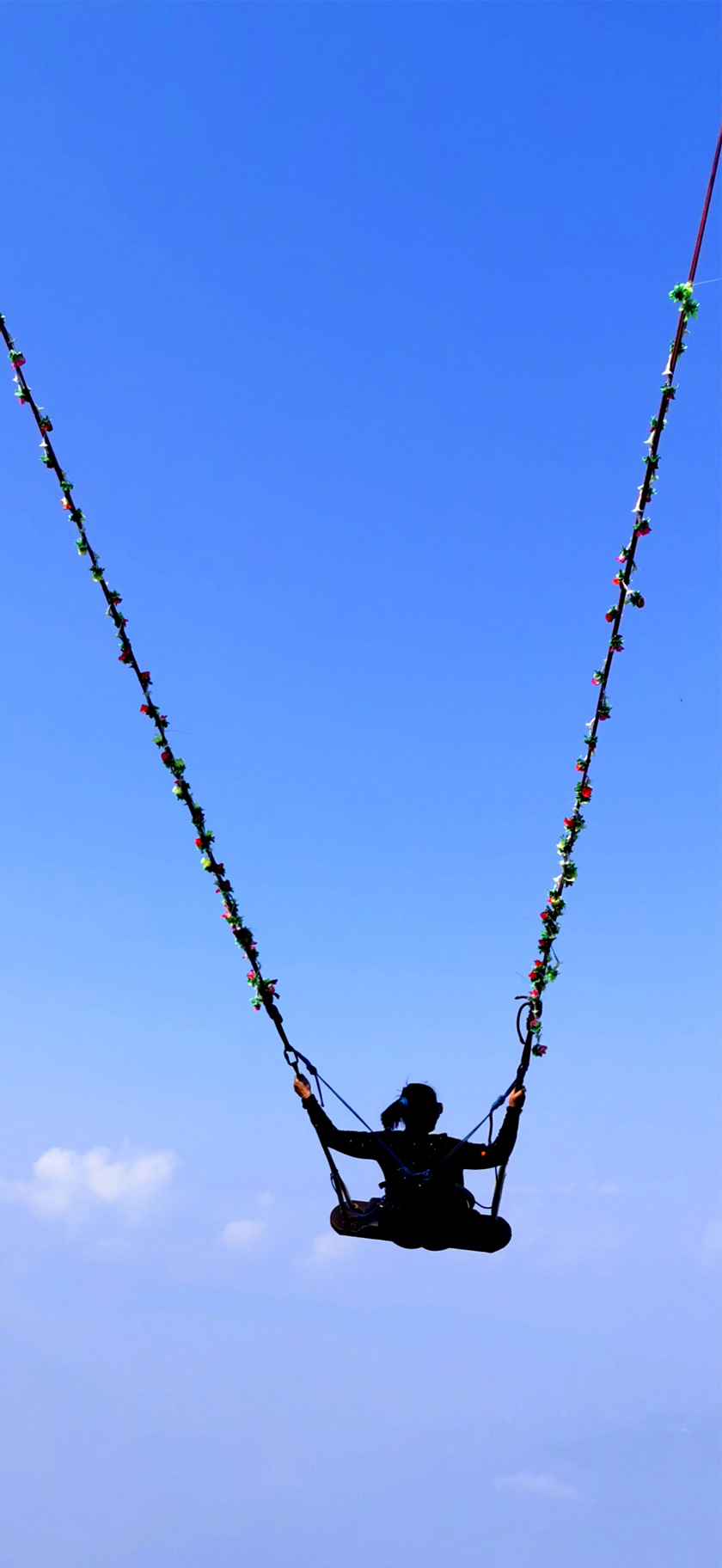 When I arrived at a small boutique hotel at the very top that was most likely to have a striking view I was disappointed to learn that they were full. I continued my search heading down the mountain and back into town where I happened upon a little local home with the word ‘Homestay’ written on the front. The home had a small shopfront that sold pens and pencils, small bars of soap, batteries, potato chips, and other sundries and there were two women attending to it and a gregarious young girl, who was maybe two years old, who noticed me right away and came over with a smile. I said namaste and asked the ladies about the homestay sign and, speaking little to no English, they yelled into the house for help. A few moments later a young boy in round-rimmed glasses and with a curious look came down and spoke to me in near-perfect English.
When I arrived at a small boutique hotel at the very top that was most likely to have a striking view I was disappointed to learn that they were full. I continued my search heading down the mountain and back into town where I happened upon a little local home with the word ‘Homestay’ written on the front. The home had a small shopfront that sold pens and pencils, small bars of soap, batteries, potato chips, and other sundries and there were two women attending to it and a gregarious young girl, who was maybe two years old, who noticed me right away and came over with a smile. I said namaste and asked the ladies about the homestay sign and, speaking little to no English, they yelled into the house for help. A few moments later a young boy in round-rimmed glasses and with a curious look came down and spoke to me in near-perfect English.
Rohit, the son of a German father and a Nepalese mother, showed me around his family home and showed me what would be my room if I stayed. It was spartan. There was just enough room to stand next to the bed (the only piece of furniture) and a small window overlooking the street. The internet worked fine and the price was a mere 700 rupees – about 8 dollars – one-tenth the cost of the Bandipur Mountain Resort.
Gorkha was a fascinating place whose charms were more subtle than many of the other destinations I visited in Nepal. The people were friendly, but not overbearing as they had been in Lumbini. There was not as much tourist infrastructure as in Pokhara, so the town retained its feeling of local authenticity. There was a degree of the usual Nepalese city chaos, but Gorkha was small and manageable, unlike Kathmandu. Most telling of what set Gorkha apart was the manner in which I lived at that tiny little homestay in the mountain.
Each night, at a nominal extra cost, I was served supper. It was simple fare of rice, daal, and usually some cooked vegetables with a few small pieces of chicken. That adorable two-year-old who greeted me when I first arrived would entertain by singing the songs that she had learned at her playgroup and all the time I was there I never saw anything but a smile on her face. Rohit I found particularly interesting. He spoke English well and was chatty and wanted to know about where I came from. Behind his spectacles, the look of him reminded me of Arthur Timothy Read and his inquisitive and astute demeanour endeared me to him instantly. When he learned that I enjoyed video games he showed me to his man cave where he had his PS4 and where he introduced me to Red Dead Redemption. He was just a local boy helping his mom to run the homestay while his father was in India working on irrigation projects for months at a time, but it was he who facilitated such a rewarding and uncommon experience in an unassuming little town. I had arrived in Nepal during a particular time of year when Hindus observe a month-long period devoted to the nightly reading of Hindu scripture. In the house, there was a small alcove between the first and second floors inside of which there was a small shrine to their deity. On my second night, I was invited to join them in the shrine for their readings where they placed small bits of food in ornamental brass dishes and where at the end of the reading ceremony each of us was given a flower petal as a symbolic token of our religious right to make one wish that, if made with true sincerity, would be granted by the favour of their gracious God.
Like many things in life, Bandipur and Gorkha had competing philosophies. Bandipur was flashy and its beauty almost too obvious. And, once it knew it had you, it covered the valley and the mountains in cloud until you were left with nothing but an invoice for a stay in a room like any other but without hospitality. Gorkha took some getting to know. The house in which Rohit and his family lived was just like any other in the village but for a small sign outside inviting people in. Above their door hung a small sign with the Nepalese greeting namaste – ‘I pay respect to the God within you’. Unassuming though it was Gorkha that captured my imagination. She did not reveal all at first glance but left it up to me to explore and discover what set her apart. In this case, it was the curiosity and willingness to serve of a young boy, the open mind, open heart and open doors provided by his mother, and the smile of a little girl. A beautiful view can inspire. It can live long in your heart and your memory, and it photographs well. But it is the generosity of others that can change your mind. Generosity can make you see that no matter what distance separates us, within each of us somewhere is the impulse to serve and that is what inspires not only awe within yourself, but joy in others. Wherever I stay when I travel, I strive to respect the space I am given and leave it as it was given to me. If in that exchange a friendship is forged then I have exceeded expectations. And if I ever have the chance to live in a world where every host can surrender all skepticism and open their door to every curious traveller, then I believe the world will know peace. I assure you it is possible because there is kindness everywhere.
